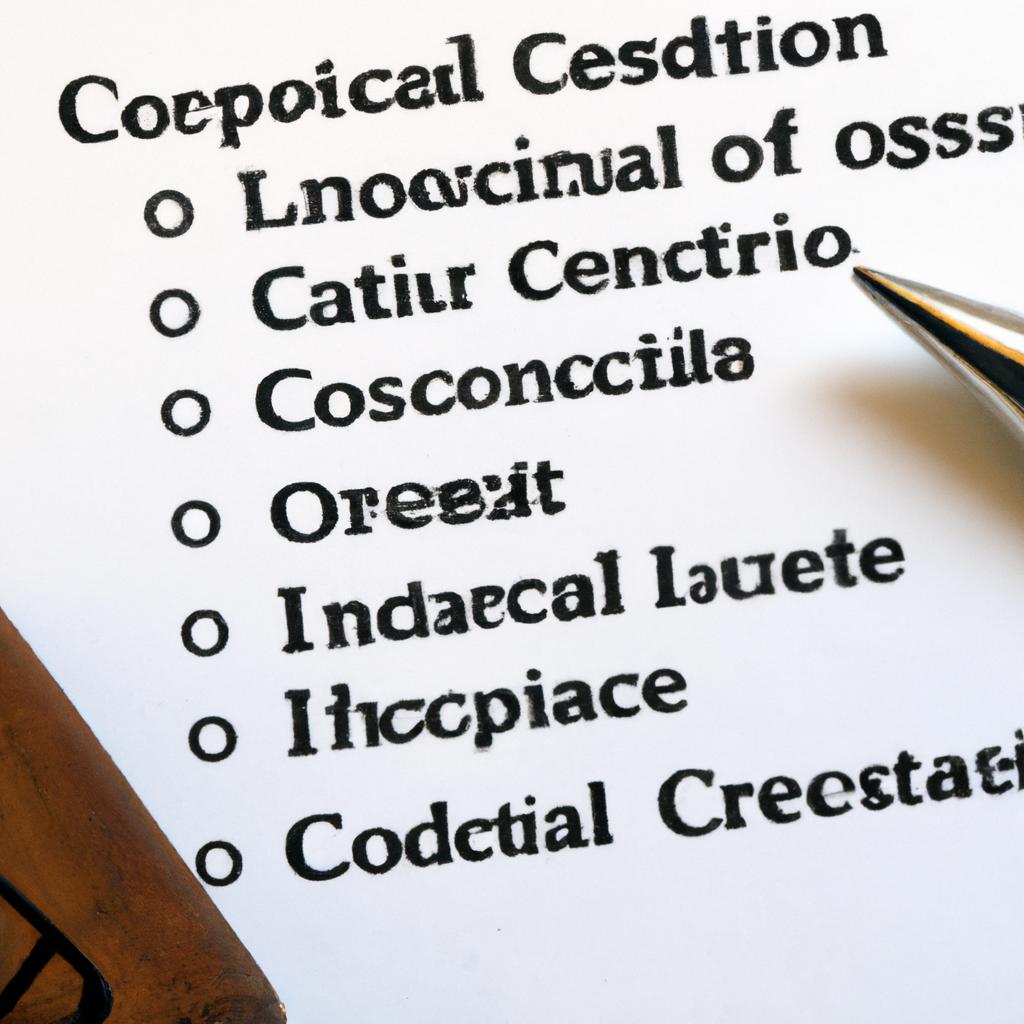In the intricate landscape of estate management, the term ”insolvent estate” looms as a complex and often daunting concept. As experienced practitioners in the realm of estate planning and administration, the team at Morgan Legal Group understands the nuances and challenges that arise when an estate is deemed insolvent. In this article, we delve into the intricacies of insolvent estates, exploring the legal implications, potential solutions, and the critical role of skilled professionals in navigating this intricate terrain. Join us as we unravel the complexities of insolvency within the realm of estate management.
Understanding the Concept of Insolvency in Estate Administration
In the realm of estate administration, the concept of insolvency can be a complex and often daunting one to navigate. When an estate is deemed insolvent, it means that the deceased individual’s debts outweigh their assets. This can present a unique set of challenges for executors and beneficiaries alike, as it may impact the distribution of the estate’s remaining assets.
Understanding the implications of insolvency in estate administration is crucial for all parties involved. Here are some key points to consider:
- Priority of Payment: When an estate is insolvent, creditors must be paid in a specific order outlined by state law.
- Asset Liquidation: In some cases, assets may need to be sold in order to satisfy outstanding debts.
- Legal Obligations: Executors have a legal duty to handle an insolvent estate in accordance with the law.

Identifying Causes of Insolvency in Estates
When dealing with an estate that is insolvent, it is crucial to identify the causes of insolvency in order to effectively address the situation. One common cause of insolvency in estates is excessive debts left behind by the deceased. This may include outstanding loans, credit card bills, or mortgages that were not fully paid off before the individual passed away.
Another factor that can contribute to insolvency in estates is poor financial planning or mismanagement of assets by the deceased. This may involve investing in high-risk ventures that resulted in significant losses, or failing to adequately save for retirement. Understanding the root causes of insolvency is key to resolving the estate’s financial issues and ensuring that creditors are fairly compensated.

Strategies for Managing an Insolvent Estate
When facing the complexities of managing an insolvent estate, it is crucial to develop a comprehensive strategy to navigate the challenges ahead. One effective approach is to prioritize the payment of debts and expenses in a systematic manner, ensuring that all creditors are treated fairly and in accordance with the law. By creating a detailed plan for addressing outstanding financial obligations, the executor can demonstrate transparency and diligence in managing the estate.
Additionally, exploring options for negotiating with creditors and exploring potential settlement agreements can help alleviate financial strain on the estate. Seeking professional guidance from financial advisors or legal experts specializing in estate management can provide valuable insight and assistance in developing a viable strategy for addressing insolvency. By taking a proactive and organized approach to managing an insolvent estate, executors can uphold their fiduciary duties and ensure a more efficient resolution of financial matters.

Legal Options and Considerations for Creditors in Insolvent Estates
When dealing with an insolvent estate, creditors must be aware of their legal options and considerations in order to maximize their chances of recovering debts owed to them. It is vital for creditors to understand the potential obstacles they may face and the strategies they can employ to navigate the complex process of estate administration.
One important consideration for creditors in insolvent estates is the priority of debt repayment. Creditors should be aware that certain debts may take precedence over others, such as secured debts versus unsecured debts. Understanding the hierarchy of debt repayment can help creditors better assess their chances of recovering the amounts owed to them. Additionally, creditors should consider negotiating with the estate administrator or executor to reach a favorable settlement, rather than engaging in costly and time-consuming legal battles. By exploring all available legal options and considerations, creditors can take proactive steps to protect their interests in an insolvent estate.
Q&A
Q: What does it mean for an estate to be insolvent?
A: An estate is considered insolvent when the debts of the deceased person exceed the value of their assets.
Q: How is the administration of an insolvent estate different from a solvent estate?
A: In an insolvent estate, the administrator must prioritize the repayment of creditors over distributing assets to beneficiaries.
Q: Can beneficiaries of an insolvent estate be held responsible for debts?
A: In most cases, beneficiaries are not personally responsible for the debts of the deceased person in an insolvent estate.
Q: How are debts typically handled in an insolvent estate?
A: Debts are usually paid off in order of priority, with secured creditors taking precedence over unsecured creditors.
Q: Is there a legal process for dealing with an insolvent estate?
A: Yes, the legal process for handling an insolvent estate typically involves liquidating assets to pay off debts and addressing any legal challenges from creditors or beneficiaries.
Q: What steps can be taken to avoid leaving behind an insolvent estate?
A: It is important to keep a clear record of assets and debts, regularly update your will, and seek financial advice to ensure your estate is not left insolvent.
Concluding Remarks
In conclusion, dealing with an insolvent estate can be a challenging and complex process. It is important to seek legal advice and guidance to navigate through the complexities involved. Remember, with proper planning and assistance, it is possible to effectively manage an insolvent estate and preserve the assets for the beneficiaries. Thank you for reading.


